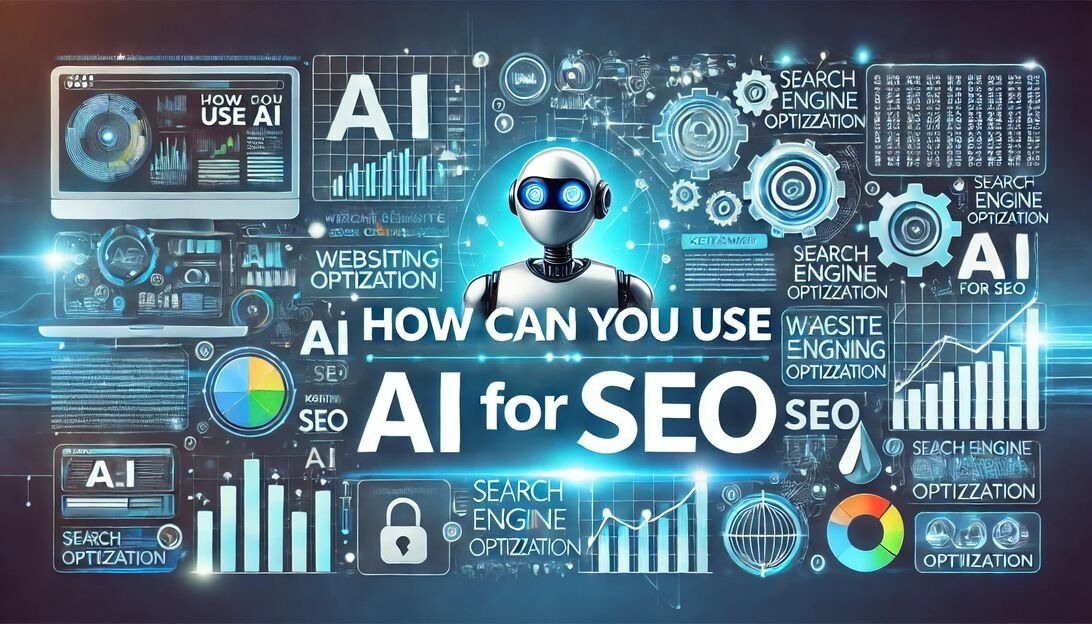
A Guide to AI and SEO
Artificial Intelligence (AI) is transforming the way websites rank and perform on search engines. From automating keyword research to analyzing user behavior, AI is making SEO strategies more precise. At the same time, search engines are becoming smarter, adapting to user intent and delivering highly relevant results. This shift has made it essential for businesses to integrate AI-driven tools into their SEO efforts.
Table Of Content
- How AI Is Changing SEO Strategies
- AI-Powered Keyword Research
- AI-Generated Content and Its Impact on SEO
- AI for Search Intent Optimization
- AI and Technical SEO
- Site Performance and AI-Driven Insights
- AI in Voice Search Optimization
- AI and Mobile SEO
- AI-Driven Automation in SEO
- Automating SEO Audits
- AI-Powered Link Building
- AI in Local SEO
- Challenges of AI in SEO
- AI-Generated Content Risks
- Over-Reliance on AI Tools
- Ethical Considerations in AI SEO
- The Future of AI in SEO
- AI and Evolving Search Algorithms
- AI in Personalized Search Results
- AI Chatbots and SEO
- AI and Website Design for SEO
- Conclusion
In this guide, we will go through different aspects of AI in SEO, covering its role in content creation, search engine algorithms, and automation. We will also look at some challenges and future possibilities that businesses should consider.
How AI Is Changing SEO Strategies
Search engines rely on AI to refine their algorithms, improving how they evaluate websites and rank content. Google’s RankBrain, for instance, analyzes search queries to understand what users are looking for. Similarly, AI-driven SEO tools help businesses optimize their websites by predicting trends and identifying ranking opportunities.
AI-Powered Keyword Research
Keyword research has traditionally been a time-consuming task, requiring extensive analysis of search volume and competition. AI has made this process faster by analyzing large datasets to predict the most effective keywords. Tools powered by AI can also suggest related phrases that users are likely to search for, improving content relevance.
In particular, AI tools help businesses refine their keyword strategies by identifying search intent. For example, they differentiate between transactional, informational, and navigational searches, allowing websites to tailor their content accordingly.
AI-Generated Content and Its Impact on SEO
AI is also playing a role in content generation. Some businesses use AI-powered tools to draft blog posts, product descriptions, and social media captions. While AI-generated content can be useful for efficiency, it still requires human input to ensure quality and originality.
Google prioritizes content that is valuable to users rather than text produced solely for ranking purposes. Consequently, businesses using AI-generated content must focus on maintaining a natural tone, accurate information, and user engagement.
AI for Search Intent Optimization
User intent has become a major factor in SEO rankings. AI algorithms analyze how people interact with search results to determine whether a page satisfies their query. If users quickly leave a page, it signals to search engines that the content is not relevant.
To improve rankings, businesses must align their content with user intent. AI tools assist in this by analyzing patterns in search behavior and suggesting improvements based on what users expect to find.
AI and Technical SEO
AI is also improving technical SEO, helping websites become more efficient and accessible to both users and search engines.
Site Performance and AI-Driven Insights
AI tools monitor website speed, mobile usability, and security issues. Search engines favor websites that load quickly and provide a seamless experience across devices. By analyzing performance data, AI can identify technical issues that could affect rankings.
For example, slow-loading pages can lead to higher bounce rates, which negatively impact SEO. AI-powered tools offer recommendations for optimizing images, reducing server response times, and improving overall site speed.
AI in Voice Search Optimization
Voice search is becoming more popular, and AI is helping websites adapt to this trend. When users perform voice searches, they often phrase queries differently compared to text searches. AI tools analyze conversational language to determine how content should be optimized for voice search.
In the same way, businesses that optimize for long-tail keywords and natural language queries are more likely to rank well for voice searches. This approach improves visibility in search results where users rely on virtual assistants.
AI and Mobile SEO
Mobile-friendliness has been a ranking factor for years, but AI has made it easier to identify and fix issues that affect mobile usability. AI-powered tools analyze mobile site structures and user interactions to suggest improvements.
For example, AI identifies pages with poor mobile navigation or intrusive pop-ups that frustrate users. Addressing these issues helps businesses improve both SEO rankings.
AI-Driven Automation in SEO
SEO involves multiple repetitive tasks, many of which AI can automate to save time and improve efficiency.
Automating SEO Audits
SEO audits help businesses identify technical issues and areas for improvement. AI-powered tools perform these audits automatically, analyzing backlinks, metadata, page structure, and site performance.
Instead of manually reviewing each factor, businesses receive AI-generated reports highlighting what needs attention. This allows SEO teams to focus on implementing changes rather than spending hours diagnosing problems.
AI-Powered Link Building
Link building is another area where AI is making a difference. AI tool analyze link profiles to find potential backlink opportunities. They assess domain authority, relevance, and trustworthiness, helping businesses acquire high-quality links.
Even though AI can suggest outreach strategies, human input is still necessary to build relationships with website owners and secure backlinks naturally.
AI in Local SEO
For businesses that rely on local searches, AI plays a crucial role in optimizing Google Business Profiles, local citations, and reviews. AI tools monitor local search trends and suggest optimizations based on what competitors are doing.
In comparison to traditional local SEO efforts, AI speeds up the process of identifying keyword opportunities and improving local visibility.
Challenges of AI in SEO
Despite its benefits, AI-driven SEO comes with some challenges that businesses need to consider.
AI-Generated Content Risks
Search engines can detect low-quality AI-generated content, which may lead to penalties. Businesses using AI for content must ensure that their articles, blogs, and product descriptions maintain originality and relevance.
Over-Reliance on AI Tools
Although AI automates many SEO tasks, relying on it too much can lead to missed opportunities. Human expertise is still necessary for interpreting data, making strategic decisions, and maintaining a brand’s unique voice.
Ethical Considerations in AI SEO
AI tools collect and analyze vast amounts of data, raising concerns about privacy and ethical practices. Businesses must ensure they comply with data protection regulations while using AI for SEO purposes.
The Future of AI in SEO
AI will continue shaping SEO strategies in new ways. Search engines are evolving, and businesses must keep up with these changes to stay competitive.
AI and Evolving Search Algorithms
Search engines are becoming more sophisticated, incorporating AI to refine how they rank websites. Future updates may focus even more on content authenticity, user engagement, and intent-driven search results.
AI in Personalized Search Results
Personalized search is likely to expand, with AI analyzing user behavior to deliver customized results. Businesses that focus on creating engaging, user-centric content will benefit from this shift.
AI Chatbots and SEO
AI chatbots are playing an increasing role in customer engagement. While their primary function is to assist users, they also impact SEO by improving dwell time and reducing bounce rates.
For instance, websites offering AI-driven support, including AI Chatbot 18, provide users with instant responses, leading to better engagement. Search engines recognize these positive interactions, which can contribute to improved rankings.
AI and Website Design for SEO
AI is also changing how websites are designed. AI-driven platforms help businesses create visually appealing, SEO-friendly layouts that enhance user experience. In industries like adult entertainment, adult web design plays a significant role in optimizing websites for better search visibility. Ensuring that these sites meet SEO standards while maintaining an engaging user experience is crucial.
Conclusion
AI is reshaping SEO by improving keyword research, content optimization, technical analysis, and automation. While AI-driven tools provide valuable insights, businesses must combine them with human expertise to achieve long-term success.
Search engines will continue refining their algorithms, making it essential for websites to stay updated on AI trends. Those who effectively integrate AI into their SEO strategies will have an advantage in the ever-changing digital landscape.





